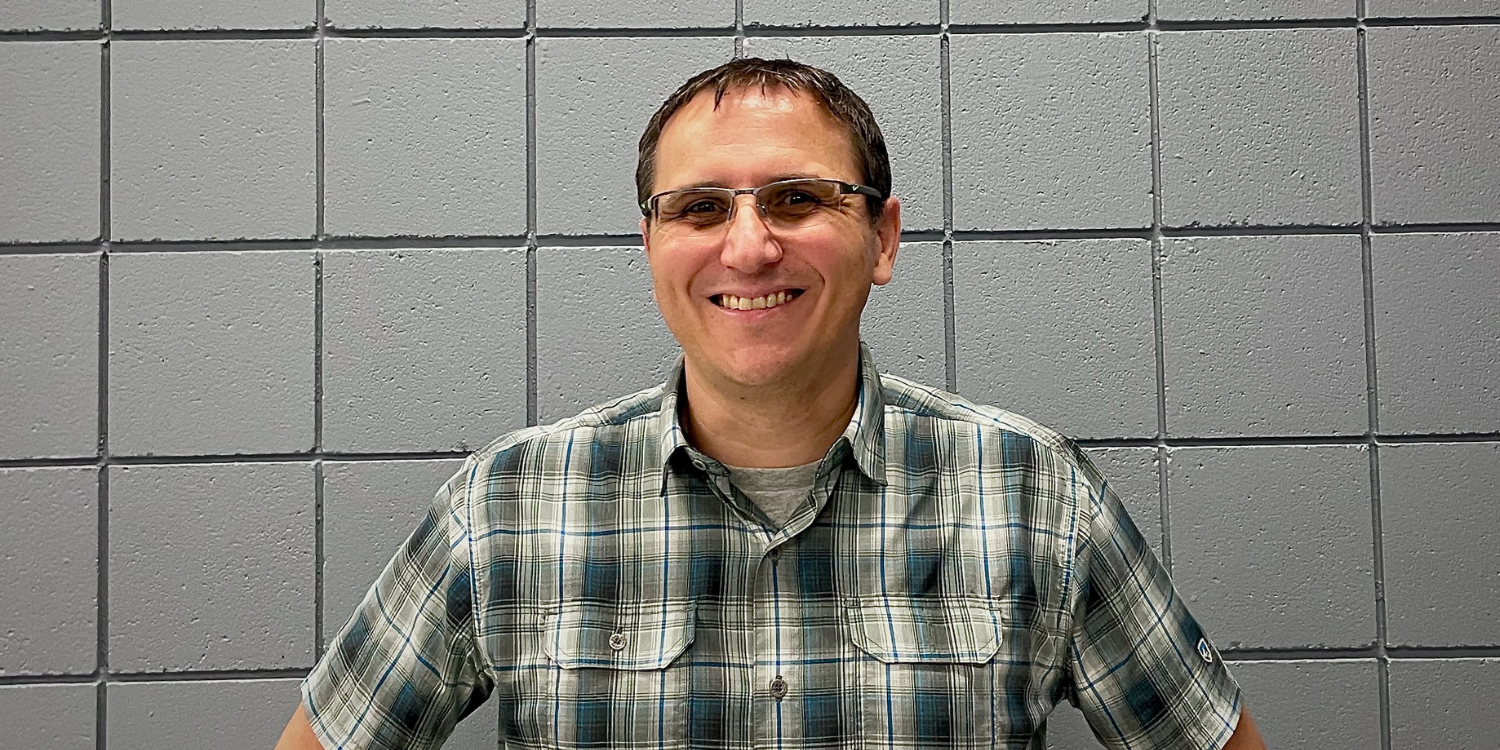Jeremy Reid is a dedicated educator who brings a spirit of creativity to citizenship education, undertaking a wide array of activities to support democracy in his classroom, school, and greater community.
Reid is a high-school teacher in Kamloops, B.C., who is committed to making real-life links between students’ lives, political issues and levels of government: “I really try to make it personal to them so they can see why learning about democracy and being an active citizen is important.”
An educator for 24 years, he has been involved with CIVIX since he began leading Student Vote in 2006. Westsyde Secondary has participated in every federal, provincial and municipal election since, with Reid growing the program into a major event that is now an important part of the school’s culture.
He is always finding new ways to promote civic engagement among students.
For example, Reid makes use of technology in his classroom, including running a successful class Twitter account his students use to engage with politicians. “A lot of kids don’t care about politics, or know much about politics, and teaching it academically and explaining isn’t a good way to make a connection,” he says. But using social media can create a quick rapport. “Countless times we’ve posted a question and had a response from a politician while the class is still going on.”
At election time, Twitter exchanges frequently end with students extending an invite to visit the class, and “having this direct contact between candidates and students really helps with students’ engagement and interest in the process.”
Student Vote isn’t the only election Reid facilitates at school. He is also teacher-sponsor for the City of Kamloops’ Junior City Council program. Each high school in the region elects a student representative to help advise on city issues from a youth perspective, and Reid coordinates Westsyde Secondary’s involvement.
“It’s an amazing experience for kids — they are exposed to civics and really get to know how city government works,” he says. “Those students are learning in a way that I can’t really teach in class to that kind of depth.”
Reid is always looking for new ways to engage students, and takes advantage of current political events to create these opportunities. In 2018 when then-Green Party Leader Andrew Weaver introduced a private members’ bill to have the voting age in B.C. lowered to 16, his students got involved in the debate.
I really try to make it personal to them so they can see why learning about democracy and being an active citizen is important.
The diversity of student backgrounds in the classroom allowed for a fruitful exchange of ideas on the subject. “Our school gets a lot of international students,” says Reid. “So we had students from Brazil, where 16-year-olds can vote and other students are from countries where voting is mandatory. On the flip-side we have students from countries where there’s no right to vote at all, or where the outcomes are predetermined.”
As a result of these discussions, his class decided they wanted to circulate a petition to have the voting age lowered.
“The students got signatures from within the school, then we contacted our local MLA. And our MLA actually formally submitted the petition and read it out loud in the parliament buildings in Victoria,” Reid says. “And that was really cool, because we were able to actually watch the video of it happening.”
The experience helped students to feel politically engaged and also garnered a lot of media attention. They gave interviews to share their perspectives and felt like their voices were being heard.
During the 2017 provincial election, Reid had his students conduct research and write opinion pieces on issues they wanted to see politicians address. The result was collected into a 187-page Apple e-book called Today’s Teens on Politics: Important Issues to British Columbia’s Youth, and covers such topics as student loan debt, the fentanyl crisis, and the Site C Dam project.
This is one of more than 20 e-books of student-created content he has published. In 2017, Apple also selected Reid as an Apple Distinguished Educator, which recognizes pioneering teachers who are trying to change the world.
Reid is a CIVIX advocate and close collaborator, participating in program evaluations, Leader Q&A videos and media opportunities around Student Vote. He regularly uses programs including Rep Day, Student Budget Consultation, CTRL-F and of course, Student Vote. He promotes use of the programs and mentors colleagues in their use.
Whatever it takes to help students become politically engaged. Says Reid, “Democracy is about getting involved and having your voice heard, which is why I am such a big advocate of facilitating democratic participation at school.”
At a Glance
Name: Jeremy Reid
Location: Kamloops, B.C.
Grades Taught: 8-12
Subjects Taught: Social Studies, History, Inquiry
Years Teaching: 24
Years Involved with CIVIX: 17
CIVIX programs used: Student Vote, Student Budget Consultation, Rep Day, CTRL-F
Key Motivation: To help students exercise their rights in a democracy, and to continue that participation into adulthood.
